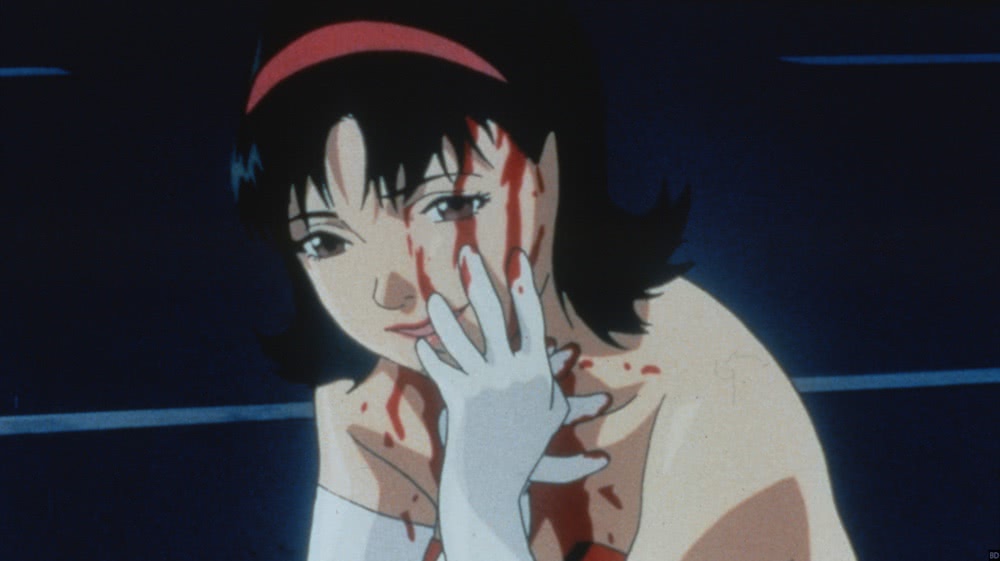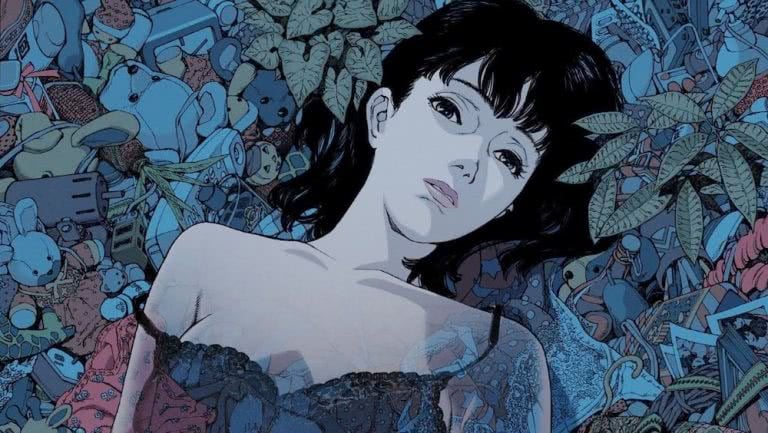There’s an old internet saying you see pop up every now and then: Fandom was a mistake. It’s been used to mock the cartoonishly entitled or to chastise the overwhelmingly toxic. Director Satoshi Kon understood just how rotten obsessive fandom can become, which is why his 1997 film, Perfect Blue, is fandom at its worst.
Perfect Blue focuses on Mima Kirigoe, a performer in the J-pop group CHAM!, who decides to leave the band so she can focuses on a career as an actresses. Her life and sanity begins to unravel as an obsessive fan, Me-Mania, begins to stalk her, while a blog called “Mima’s Room” pretends to be her. It’s an examination of the broken nature of fandom, where the line between adoration and obsession is thin, and how easy it is to dip from the former into the latter.
CHAM! is a part of Japanese pop music sub-culture known as “Idols.” As much as Western pop music is seen to be artificial, created by a committee and sold as a plastic product, the Japanese Idol model is that ethos pushed to the extreme. They’re products designed to fulfil a fantasy, with fans latching onto a specific member of these groups, rabidly consuming and obsessing over their every move.
Perfect Blue focuses on Mima Kirigoe, a performer in the J-pop group CHAM!, who decides to leave the band so she can focuses on a career as an actresses.
Part of this cultivated image is that these Idols need to maintain a constant state of availability and virginal innocence. Breaking this fantasy usually results in the performer taking a massive hit to their popularity. In 2012, Masuda Yuka of AKB48 left the band after it was revealed she has stayed overnight at the home of another J-Pop group, Da Pump. A similar event occurred in 2013 with Minami Minegishi. She was demoted to one of the AKB48’s much less popular branches after it was revealed she had a similar overnight stay. In response, she shaved her head and filmed a long, uncomfortable apology video begging for forgiveness.
Watch a trailer for Perfect Blue below
Mima and CHAM! are very much within this framework. Me-Mania considers the Mima performing on-stage as a part of CHAM! to be the “real” Mima, while the Mima acting in the television show Double Bind is the fake. When Mima appears in an erotic photo-shoot, Me-Mania goes out of his way to purchase literally every copy he can get his hands on, sobbing that his pure vision of her has now been defiled. He’s unable to separate the real from the unreal – that the Idol and the person are different entities. Her basic human wants and needs mean nothing to him – he’s unhappy that she’s no longer maintaining his fantasy.
Love Music?
Get your daily dose of metal, rock, indie, pop, and everything else in between.
That fantasy haunts Mima in the form of her Other Self – a ghostly image of Mima in her old CHAM! Costume – who represents this idea that she isn’t actually human but a product to be consumed. It’s that Other Self that ensnares fans like Me-Mania, with its promise to fulfil his fantasies and desires. Through Mima’s Room, the fake Mima goads Me-Mania into protecting her from the imposter Mima (the real one). We see a scene in which a wall covered with Mima posters speak to him, while an apparition of Mima in her CHAM! outfit embraces him. This betrayal is what pushes him over the edge, leading to Me-Mania’s attempt on her life – something that has an uncanny parallel to real-life events.

In 1996 Ricardo López mailed a bomb to Björk. He’d spent the better part of three years obsessed with her, and had felt betrayed after learning she was in a relationship. He felt he had wasted so much time on her without getting anything in return, so he hoped the bomb would at least permanently scar her (to forever be a part of her life in the same way she was a part of his) but mainly aiming to kill her so the two could be united the death. López took his own life shortly after mailing the package – his last words were: “This is for you.”
Perfect Blue is a reflection of reality; a worst-case scenario of what happens when the obsessive and possessive nature of fandom goes too far.
When we’re first introduced to Me-Mania, he’s holding his hand out in such a way that the perspective makes it looks like Mima is dancing in his palm. He’s drawn to look considerably more ugly than another other characters, almost monstrous with his grey skin, jagged teeth and reptilian looking eyes. His apartment is a dank, uninviting place that’s plastered with posters of Mima.
You quickly get the impression that the J-pop Idol is the only thing staving off his extreme loneliness. López himself struggled with his body image and loneliness, and these issues were regularly documented in his journal. The two are kindred spirits; while the rest of the world may not accept Me-Mania and López, at least the objects of their obsession will always be there for them.
Fandom isn’t inherently bad. It’s always nice to know that you’re able to bond with someone over a shared pop cultural experience. But it’s very easy to become overwhelmed by the more negative side of fandom: entitlement, competiveness and an uncomfortable over-familiarity. After quitting CHAM!, Mima is bombarded with death threats and constant hate via email, a frighteningly accurate foresight of being online in 2018.
Perfect Blue is a reflection of reality; a worst-case scenario of what happens when the obsessive and possessive nature of fandom goes too far. It places unhealthy fan obsession under a microscope and dissects it, showing us what it truly is: a toxic entitlement that when fed can grow into a monster, like a cancerous tumour.

































